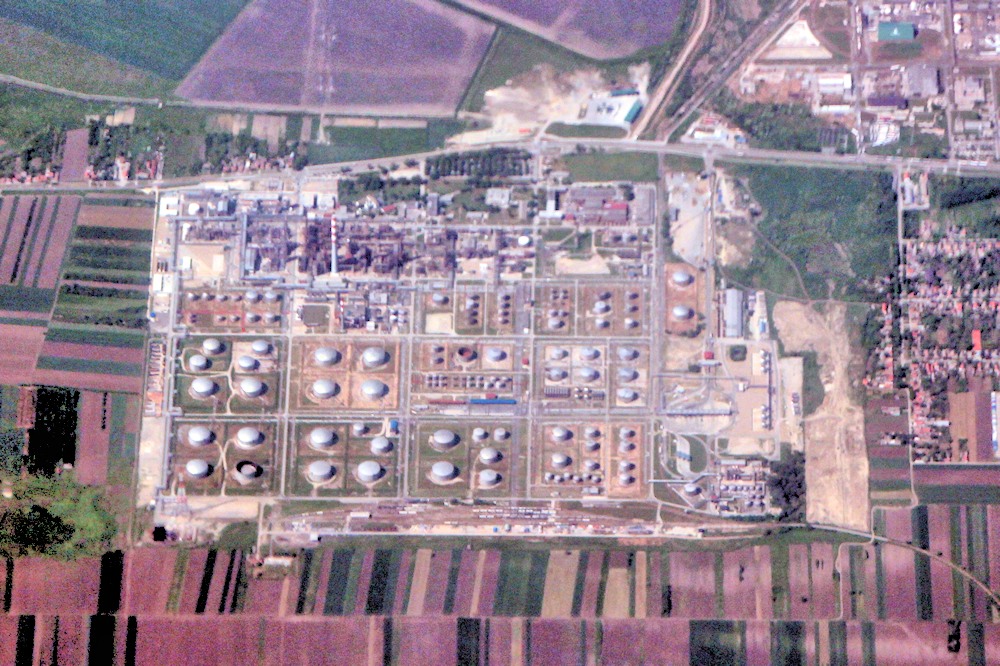 BBC News
BBC NewsBorrowing was £17.4bn last month, the second highest October figure since monthly records began in 1993.

As President Donald Trump announced sweeping new sanctions against Russia’s energy giants Rosneft and Lukoil this week, the implications for global oil markets are immediate and dramatic. But behind the geopolitics lies another, quieter story — one of transition, pressure, and opportunity in an oil industry that is being reshaped in real time. For those working in or entering the sector, it’s a reminder that the energy world is not just changing — it’s accelerating.
The sanctions, triggered by Russia’s refusal to end its war in Ukraine, target two of the largest producers in the world. Rosneft alone accounts for nearly half of Russia’s oil production, which itself makes up 6% of global output. The two firms export a combined 3.1 million barrels of oil per day. This isn’t a marginal move. It’s a direct shot at a cornerstone of the Russian economy — and a massive stress test for global energy supply chains.
Trump’s team is betting that hitting oil revenues will squeeze Moscow hard enough to change its strategic calculus. But such decisions have consequences that ripple across global job markets and domestic oil industries — including in the US, UK, and the wider West.
For workers in the energy sector, this moment signals several things. First, the traditional upstream sector — exploration, drilling, and production — remains vitally important, but also exposed to volatility. When markets constrict or prices spike, as they likely will with Russian crude increasingly locked out of the system, it disrupts the economics of oil and gas jobs across the board.
Second, supply chain flexibility is now a strategic asset. With Russian barrels squeezed out of Western markets, demand could increase for production elsewhere — whether from US shale basins, Canadian sands, North Sea fields, or offshore platforms in Africa. That means opportunities for engineers, field technicians, compliance officers, logistics coordinators, and energy traders who understand how to pivot operations quickly.
Third, geopolitical risk is now part of the core business model — not just something for diplomats or defence experts. Risk analysts, cyber security specialists, energy economists and trade lawyers are now increasingly in demand in oil companies. They’re the ones being asked how to reroute shipments, redesign contracts, or deal with sanctioned entities.
According to recent figures from the UK’s Energy and Utility Skills Partnership, around 117,000 new workers will be needed in the energy sector by 2030 to replace retirees and meet evolving demand. In the US, the Department of Energy’s 2024 jobs report showed a 3.7% growth in oil and gas jobs last year — and the trend is expected to continue, albeit with more emphasis on adaptability, digital literacy, and geopolitical awareness.
Jobs are also opening up in adjacent sectors. As Western governments double down on efforts to reduce dependence on Russian hydrocarbons, alternative energy production — including LNG, hydrogen, and biofuels — is receiving a boost. That creates parallel demand for project managers, pipeline engineers, environmental compliance specialists and more.
There are still plenty of traditional jobs too: roughnecks, toolpushers, petroleum engineers and refinery staff. But employers are increasingly looking for dual-skills — people who understand both hydrocarbons and carbon capture, who can code in Python and also rig up a wellhead.
Trump’s sanctions also expose a fundamental long-term tension: we want to phase out oil dependence, but not yet. Sanctioning Russian oil comes with a cost — potentially higher prices and tighter supplies in the short term — which will impact everything from transport logistics to energy affordability. For politicians, that’s a balancing act. For workers, it’s a career planning issue.
The energy sector still offers strong salaries — median pay for petroleum engineers in the US remains over $130,000, while rig workers can earn six figures on international contracts. But what’s changing is the nature of security. No job in oil is future-proof — unless it’s flexible, internationally aware, and tech-savvy.
For students or career-switchers eyeing the sector, this is a moment to pay attention. Energy diplomacy is no longer a background process — it’s headline news, and shaping the fate of major employers overnight. The companies that will thrive are the ones that can de-risk themselves, shift supply chains quickly, and retrain their workforces to be agile in a turbulent market.
As Trump pushes allies like India, Turkey and China to stop buying Russian oil, we may see even greater reshuffling in global supply networks. That could mean more offshore activity in West Africa, expanded output from the Permian Basin, or accelerated licensing in the North Sea — all of which translate into jobs.
But these will be jobs that demand more: more awareness, more technical crossover, more political context. The energy transition is not a linear journey from oil to renewables — it’s a contested and chaotic space, shaped by war, deals, markets and diplomacy. And for the workforce, that means every career is now also a geopolitical calculation.
Whether you’re welding a pipeline in Texas, modelling trade risk in Geneva, or studying energy policy in Aberdeen, the message is the same: the oil industry is still hiring. But the jobs of the future won’t look like the jobs of the past.